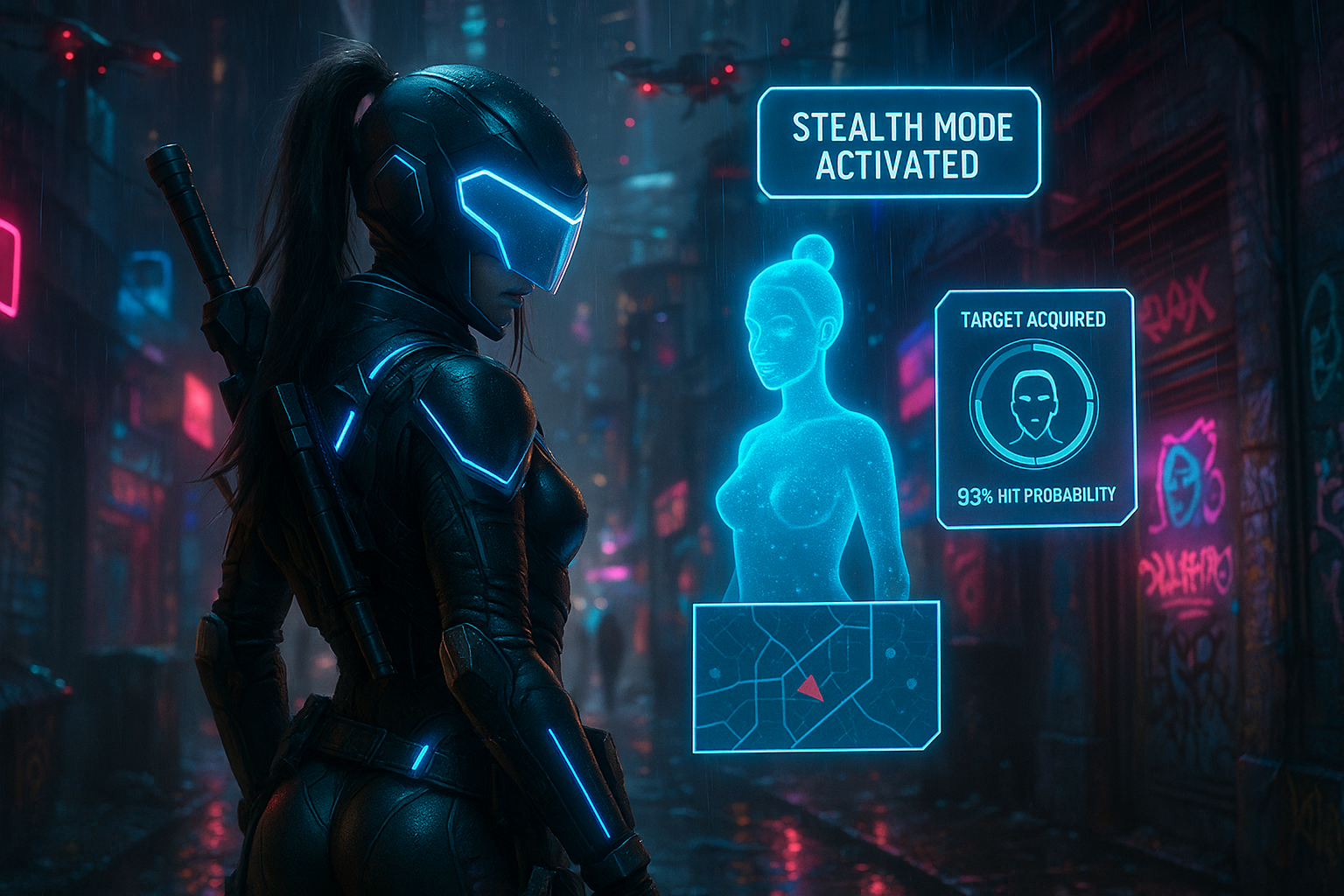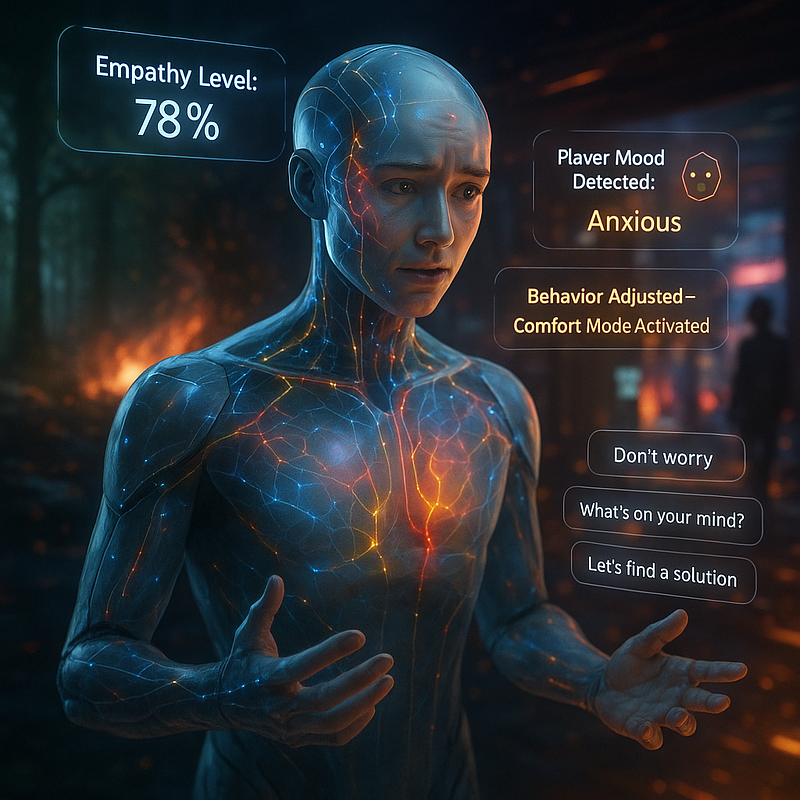Art /Entertainment
Virtual Reality Concerts: The Future of Live Music in 2024

Introduction
In an era where technology continuously reshapes our experiences, Virtual Reality (VR) concerts are emerging as a groundbreaking innovation in the live music industry. By 2024, these immersive events are set to redefine how we enjoy and participate in concerts, providing fans with unprecedented access to their favorite artists and performances. This article delves into the transformative impact of VR concerts, exploring their benefits, technological advancements, and future potential.
The Evolution of Live Music

Image by freepik
-
Traditional Concerts
Live music has always been a cornerstone of the entertainment industry, offering fans the unique thrill of experiencing their favorite artists in person. From intimate gigs in small venues to massive festivals drawing crowds of thousands, traditional concerts have provided a communal space for shared musical experiences.
-
The Rise of Digital Concerts
The digital revolution brought about significant changes, with live streaming and online platforms making concerts more accessible to a global audience. However, these digital concerts often lacked the immersive and interactive elements that make live performances so captivating.
Expanding Concert Accessibility
Virtual reality concerts are making live music more accessible to people with various needs. Those who face mobility challenges or have difficulty traveling can now enjoy high-quality performances from home. This expanded accessibility is a significant step forward in making live music inclusive for everyone. As VR technology continues to improve, it will further break down barriers and provide more opportunities for fans to experience live music in ways that were previously unavailable.
What Are Virtual Reality Concerts?

Image by freepik
-
Defining VR Concerts
Virtual Reality concerts utilize advanced VR technology to create a fully immersive concert experience. By wearing VR headsets, fans can enter a virtual environment where they can watch live or pre-recorded performances as if they were physically present at the venue.
-
Key Features
- Immersive Environments: VR concerts simulate real-world venues or create fantastical virtual stages, enhancing the visual and auditory experience.
- Interactive Elements: Fans can interact with the environment and other attendees, adding a social dimension to the experience.
- Accessibility: VR concerts can be accessed from anywhere in the world, breaking down geographical barriers.
Benefits for Emerging Artists
For emerging artists, VR concerts offer a valuable opportunity to reach new audiences. Performing in a virtual space can provide exposure to global fans without the costs and logistical challenges of touring. This platform allows new artists to showcase their talents and build a fan base from anywhere in the world. By leveraging VR technology, up-and-coming musicians can connect with listeners on a larger scale and gain recognition in the competitive music industry.
The Rise of Virtual Reality Concerts
Virtual reality concerts are rapidly gaining popularity as a groundbreaking way to experience live music. Unlike traditional concerts, which require physical attendance, VR concerts allow fans to enjoy live performances from the comfort of their homes. This innovative approach has been driven by advancements in technology, making it possible for users to feel as if they are part of the event, even if they are thousands of miles away. With VR headsets becoming more accessible, this new format is making live music more inclusive and diverse.
Technological Advancements Driving VR Concerts

Image by freepik
-
VR Hardware
The development of advanced VR headsets, such as the Oculus Quest and PlayStation VR, has made high-quality VR experiences more accessible to the average consumer. These devices offer high-resolution displays and precise motion tracking, essential for an immersive concert experience.
-
VR Software
Innovative software platforms like Wave and Melody VR are at the forefront of VR concert production. These platforms provide tools for artists to create and broadcast VR performances, incorporating elements like 3D graphics, spatial audio, and interactive features.
-
5G Connectivity
The rollout of 5G networks is crucial for VR concerts, as it enables low-latency, high-bandwidth connections necessary for streaming high-quality VR content. This ensures a seamless and immersive experience for users.
Enhancing Fan Engagement
Virtual reality concerts also enhance fan engagement by offering interactive experiences that traditional concerts cannot. Fans can use VR to interact with the performance, explore different visual elements, and even participate in special virtual events. These interactive features create a deeper connection between the audience and the artist, making the concert experience more memorable and engaging. As technology evolves, these interactive elements are likely to become even more advanced, further enhancing the fan experience.
Accessibility and Global Reach
One of the biggest advantages of VR concerts is their ability to connect audiences from around the world. Fans who might have previously missed out due to geographical constraints can now attend performances virtually. This global reach not only benefits fans but also offers artists the chance to perform for a wider audience without the need for extensive touring. By breaking down physical barriers, VR concerts are expanding the possibilities for how live music is experienced and enjoyed.
Benefits of Virtual Reality Concerts

Image by freepik
-
Enhanced Fan Experience
VR concerts offer a level of immersion that traditional and digital concerts cannot match. Fans can feel as though they are standing front row at a live performance, complete with dynamic visuals and spatial audio that replicates the acoustics of a real venue.
-
Increased Accessibility
For fans who cannot attend live concerts due to geographical, financial, or physical constraints, VR concerts provide an accessible alternative. This inclusivity allows a broader audience to enjoy live music experiences.
-
New Revenue Streams for Artists
Artists and music labels can explore new revenue streams through VR concerts. Virtual ticket sales, exclusive VR content, and virtual merchandise are just a few ways artists can monetize their performances.
-
Sustainability
VR concerts are a more environmentally friendly option compared to traditional concerts, which often involve significant travel and resource consumption. By reducing the need for physical infrastructure and transportation, VR concerts contribute to a more sustainable entertainment industry.
Enhancing the Concert Experience
Virtual reality offers unique features that enhance the concert experience. Fans can enjoy interactive elements, such as choosing different camera angles or even participating in virtual meet-and-greets with artists. The immersive environments created in VR can transform a simple performance into a multi-sensory experience. With the ability to customize the virtual venue, the concert experience becomes more engaging and tailored to individual preferences, creating memorable experiences that go beyond traditional concert settings.
The Growing Popularity of VR Concerts
Virtual reality concerts are quickly becoming a popular alternative to traditional live music events. With the rise of VR technology, more people are discovering the convenience and excitement of attending concerts virtually. This shift is partly due to the increased availability of VR headsets and the growing interest in digital experiences. As more artists and fans embrace this format, VR concerts are gaining momentum and becoming a common part of the live music scene.
Challenges and Considerations

Image by freepik
-
Technical Limitations
Despite significant advancements, VR technology still faces challenges such as motion sickness, high costs of equipment, and the need for powerful computing hardware. These factors can limit the widespread adoption of VR concerts.
-
Content Creation
Producing high-quality VR concert content requires substantial investment in technology and expertise. Artists and production teams must learn to navigate the complexities of VR content creation to deliver compelling performances.
-
Audience Adoption
While the younger, tech-savvy generation may readily embrace VR concerts, older audiences might be more resistant to adopting new technologies. Educating and engaging a diverse audience is essential for the widespread success of VR concerts.
Integrating VR with Traditional Concerts
The integration of virtual reality with traditional concerts is an exciting development for the music industry. Many artists are starting to explore hybrid models that combine live, in-person shows with virtual elements. This approach allows fans who cannot attend the physical event to still participate and enjoy the performance through VR. By offering both physical and virtual options, artists can reach a broader audience and provide more flexible experiences, catering to different preferences and situations.
Looking Ahead
As technology continues to advance, the future of VR concerts looks promising. Innovations in VR and augmented reality are expected to improve the quality and accessibility of these events. With ongoing developments, it is likely that VR concerts will become an integral part of the live music landscape, offering fans new and exciting ways to engage with their favorite artists. As more artists and venues explore this format, we can anticipate even more creative and immersive concert experiences in the years to come.
The Future of VR Concerts

Image by freepik
-
Integration with Augmented Reality
The future of VR concerts may involve integration with Augmented Reality (AR), creating hybrid experiences that blend the physical and virtual worlds. This could allow fans to enjoy concerts in their living rooms while interacting with virtual elements overlaid on their real environment.
-
Personalized Experiences
Advancements in AI and machine learning could enable personalized concert experiences tailored to individual preferences. Fans might choose different camera angles, setlists, or even interact with virtual avatars of their favorite artists.
-
Expanding Beyond Music
The concept of VR concerts could extend beyond music to other forms of entertainment, such as theater, dance, and sports. This expansion would further solidify VR’s role in the future of live entertainment.
Embracing the Future of Live Music
Virtual reality concerts represent an exciting evolution in how we experience live music. As technology advances, these virtual events are likely to become a standard part of the music landscape, offering unique and immersive experiences that complement traditional concerts. By embracing VR, the music industry is not only expanding the reach of live performances but also enhancing how fans connect with their favorite artists. This innovation marks a new chapter in live entertainment, blending the best of technology with the joy of music.
Industry Impact
VR concerts have also had a significant impact on the music industry. The accessibility and affordability of these concerts can democratize music consumption, making live performances more accessible to fans who may not be able to attend traditional events due to geographical or financial constraints. At the same time, they provide artists with new revenue streams, whether through ticket sales, virtual merchandise, or exclusive fan experiences.
As record labels and artists experiment with this format, new business models are emerging. From virtual VIP passes to interactive experiences that allow fans to remix a song live during the concert, the possibilities for monetization are expanding.
Comparative Table: VR Concerts vs. Traditional Concerts
| Feature | Virtual Reality Concerts | Traditional Concerts |
| Accessibility | Global, no geographical constraints | Limited to venue location |
| Immersiveness | 360-degree, interactive, customizable environment | Limited to stage, physical environment |
| Cost | Typically lower, no travel/accommodation required | Higher, including tickets, travel, etc. |
| Audience Interaction | Digital avatars, real-time interaction via VR platforms | Physical interaction with attendees |
| Production Flexibility | No physical constraints, limitless creative options | Limited by venue space and logistics |
| Equipment Requirement | VR headset and internet connection required | None beyond attending the venue |
| Emotional Atmosphere | Lacks physical energy of a crowd | Strong shared emotional experience |
| Revenue Generation | Ticket sales, virtual merchandise, exclusive experiences | Ticket sales, merchandise, VIP passes |
Analysis Table: Benefits and Challenges of VR Concerts
| Aspect | Benefits | Challenges |
| Audience Reach | Global reach, no travel required | Limited by adoption of VR technology |
| Cost | Affordable for fans and artists | Initial investment in VR gear can be a barrier |
| Innovation | Customizable environments, new monetization options | Emotional connection hard to replicate virtually |
| Technical Experience | Enhanced by 5G, haptic feedback, real-time interaction | Possible technical glitches, motion sickness issues |
| Artist Exposure | Increased global visibility, unique experiences | Difficult to gauge real-time audience energy |
Conclusion
As we move into 2024, Virtual Reality concerts are poised to revolutionize the live music experience. By offering unparalleled immersion, accessibility, and new opportunities for artists, VR concerts represent the future of live entertainment. While challenges remain, ongoing technological advancements and growing audience interest suggest that VR concerts will become an integral part of the music industry landscape.
Art /Entertainment
AI in Gaming: Enhancing Enemy Behavior in 3D Games

Introduction
When enemies in a game surprise you with clever flanking moves, adapt to your strategies, or coordinate attacks like real squads, it’s not just great design — it’s artificial intelligence in action. As 3D games grow in scale and complexity, traditional enemy logic no longer satisfies players looking for immersive, reactive worlds. AI is stepping in to change the rules of engagement, giving rise to smarter enemies that think, learn, and challenge.
A game development company designs, develops, and publishes video games using tools like Unity, Unreal Engine, and custom-built engines. These companies handle everything from game design, 3D modeling, and AI integration to multiplayer infrastructure and post-launch updates. At Vasundhara Infotech, we specialize in 3D game development powered by smart AI systems, creating immersive gameplay and intelligent enemy behavior.
This article explores how AI is revolutionizing enemy behavior in 3D gaming, diving deep into the mechanics, technologies, and design philosophies behind these advancements. From dynamic pathfinding to neural networks and procedural learning, we’ll uncover how smarter enemies are reshaping the player experience and pushing the boundaries of what’s possible in interactive entertainment.
The Evolution of Enemy AI in Games
Enemy AI has come a long way since the days of predictable attack patterns and fixed patrol routes. In early 3D games, enemies operated using finite-state machines or simple if-else logic. These systems were effective but easily exploitable.
As players became more experienced, developers recognized the need to craft more lifelike, adaptive, and unpredictable opponents. AI techniques have since evolved to include behavior trees, utility systems, machine learning, and goal-oriented action planning (GOAP). These methods allow enemies to react in real time, assess situations, and simulate intelligence.
Key milestones in AI enemy evolution:
- DOOM (1993): Enemies navigated 2D maps with basic chase logic
- Half-Life (1998): Introduced squad-based AI that could retreat and flank
- F.E.A.R. (2005): Pioneered adaptive enemy AI with cover mechanics and coordinated behavior
- The Last of Us Part II (2020): Enemies used dynamic group strategies, named allies, and adjusted tactics
Each generation of games has raised the bar for what’s expected in enemy intelligence, setting the stage for today’s AI-driven experiences.
Why Smart Enemies Matter in 3D Games
Enemy intelligence isn’t just a technical flex — it’s critical to player immersion, engagement, and replayability. Smarter enemies create more satisfying challenges and make the game world feel alive.
Impact of intelligent enemy AI:
- Keeps players on their toes with unpredictable encounters
- Encourages creativity and experimentation with tactics
- Increases emotional investment through reactive storytelling
- Makes each playthrough unique and dynamic
Without smart AI, even the most stunning 3D worlds can feel empty or repetitive. In contrast, well-executed AI creates emergent gameplay, where unscripted scenarios unfold based on player and enemy interactions.
Core AI Techniques Enhancing 3D Enemies
Game developers leverage a combination of traditional and modern AI methods to build intelligent enemies that adapt and respond in real time.
1. Behavior Trees
Behavior trees are one of the most widely used structures in modern game AI. They allow for modular, reusable decision-making systems where enemies evaluate conditions and perform actions based on priority.
Use case: In Assassin’s Creed, guards use behavior trees to patrol, investigate sounds, chase the player, or return to normal routines.
Benefits:
- Modular and readable
- Easy to expand with complex logic
- Efficient for performance-constrained environments
2. Goal-Oriented Action Planning (GOAP)
GOAP is a decision-making system where enemies plan a sequence of actions to achieve specific goals based on world states and priorities.
Example: In F.E.A.R., AI enemies use GOAP to seek cover, flank the player, reload, and regroup dynamically.
Why it’s powerful:
- Enables adaptive, strategic decisions
- Makes enemy actions feel deliberate and calculated
3. Navigation and Pathfinding
AI enemies must move through 3D environments in believable ways. Pathfinding systems like A* (A-star) and NavMesh allow enemies to navigate terrain, avoid obstacles, and reposition intelligently.
Advanced additions:
- Dynamic obstacle avoidance using raycasting
- Climbing, swimming, or flying behavior
- Real-time path recalculation during player pursuit
Real-world example: Halo’s Covenant enemies dynamically use terrain, vehicles, and elevation to outmaneuver players.
4. Machine Learning in Enemy AI
Machine learning introduces a new frontier in game AI where enemies can learn from players, adapt strategies over time, and improve without manual scripting.
5. Reinforcement Learning
Enemies trained with reinforcement learning can adapt by trial and error. They receive rewards or penalties based on actions and evolve optimal strategies.
Use case: Ubisoft La Forge has experimented with reinforcement learning to develop AI agents that improve their tactics through thousands of simulations.
5. Neural Networks
Neural networks allow AI to recognize patterns in gameplay, such as player movement or attack rhythms, and respond accordingly.
In action: In experimental AI mods, enemies trained with neural nets have learned to dodge, counter, and mimic player behaviors effectively.
Limitations and considerations:
- ML-based AI can be unpredictable or unbalanced
- Requires significant training data and computing power
- Often used in companion tools or procedural systems rather than production enemies
6. Procedural AI: Making Enemies That Evolve
Procedural generation isn’t limited to terrain or levels — it also extends to enemy behavior. Procedural AI enables the generation of unique enemy patterns, personalities, and responses every time you play.
In practice:
- Enemies develop unique traits (e.g., aggression, stealth, loyalty)
- Factions remember the player and change behavior over time
- Bosses adapt movesets based on previous encounters
Case Study: Shadow of Mordor’s Nemesis System
This system allowed orc enemies to remember past fights, grow in rank, and develop rivalries. Combined with procedural animation and AI, it created deeply personalized and dynamic enemies.
Why it works:
- Makes player choices matter
- Encourages replayability
- Turns enemies into narrative elements

Emotional AI and Immersive Behavior
AI in 3D games isn’t just about tactics — it’s also about emotional expression and believability. Enemies that express fear, anger, confusion, or panic can create richer interactions and storytelling.
How emotional AI enhances gameplay:
- Humanized enemies evoke empathy or moral tension
- Dynamic voice lines react to player actions in real time
- Group AI systems trigger panic when a leader falls
Example: In The Last of Us Part II, enemies call each other by name, mourn fallen allies, and change behavior based on emotional states.
This level of immersion elevates enemy AI beyond mechanics — it becomes a storytelling tool.
Tools and Engines Supporting AI in 3D Game Development
Developers have access to robust engines and middleware that simplify AI implementation.
Unity AI Toolkit
- Behavior Designer for creating visual behavior trees
- NavMesh for pathfinding in 3D spaces
- ML-Agents for integrating machine learning
Unreal Engine
- Built-in support for behavior trees and blackboard systems
- EQS (Environmental Query System) for AI awareness
- MetaHuman AI for emotional and facial animation syncing
Third-party tools:
- RAIN AI
- Apex Utility AI
- xAI for Unity
These tools make it easier to create believable AI without reinventing the wheel.
Challenges in Building Smarter Enemies
Creating advanced AI in games comes with its share of hurdles:
- Performance Constraints: Real-time AI must be lightweight enough to run on multiple platforms, including consoles and VR devices.
- Balancing Difficulty: Overly smart enemies can frustrate players. The challenge lies in making them believable, not unbeatable.
- Debugging Complexity: AI decisions are harder to track and debug than scripted logic. Visualizers and logging systems become essential.
- Ethical and Narrative Impact: Games with emotional AI must consider how enemy behavior affects narrative tone and player psychology. Is an enemy that pleads for mercy appropriate in all genres?
Actionable Tips for Game Developers
If you’re building smarter AI for 3D games, here are practical ways to start:
- Define Player Expectations: Decide what kind of intelligence makes sense for your genre and audience. Tactical enemies in a stealth game differ from chaotic mobs in a hack-and-slash.
- Start with Behavior Trees: They offer a scalable, modular way to implement decision-making that’s easy to iterate on.
- Layer Complexity Gradually: Introduce randomness, memory, and learning in stages to avoid unpredictable or buggy behavior.
- Use Analytics: Track player interaction with enemy AI to identify patterns, exploitations, and areas for improvement.
- Balance with Playtesting: Test AI across skill levels and play styles to ensure fairness and challenge are well-balanced.
The Future of Enemy AI in 3D Games
The future of AI in gaming points to even greater immersion and personalization.
- Predictive AI: Systems that anticipate player actions and evolve enemy behavior mid-game.
- AI-as-a-Service in Cloud Gaming: Enemy logic offloaded to cloud services, enabling deeper simulations without taxing local hardware.
- Voice-Interactive AI Enemies: Enemies that respond to voice commands, taunts, or strategies spoken by the player.
- Cross-game Memory: Imagine enemies that remember your actions across sequels or online worlds, creating persistent adversaries.
These innovations signal a future where enemy AI isn’t just a feature — it’s a character, a storyteller, and an adversary worth remembering.
Conclusion: Smarter Enemies Create Smarter Gameplay
AI is no longer just a backend mechanic in 3D games — it’s the beating heart of dynamic, engaging, and memorable encounters. From stealthy assassins to emotionally reactive bosses, smarter enemies deepen immersion and elevate player experience.
By embracing advanced AI techniques, developers can build worlds where every battle feels fresh, every encounter matters, and every enemy has a mind of its own.
At Vasundhara Infotech, we specialize in developing immersive 3D games powered by smart AI systems. If you’re ready to craft next-gen gameplay with intelligent enemies and adaptive design, partner with us and bring your vision to life.
Art /Entertainment
Discover the Best Bearbricks Collection: Where to Buy

If you’re a fan of designer toys, pop culture collectibles, or simply unique art pieces, Bearbricks have likely caught your attention. These iconic figures, known for their blocky bear shape and endless design variations, have become a global sensation, especially in France’s vibrant collector scene. Whether you’re new to Bearbricks or a seasoned enthusiast, this guide will introduce you to some of the top designs — including the legendary Medicom Bearbrick and the sought-after Kiss Land Bearbrick — explore the rise of the Bearbrick 3D model, and share tips on where to buy authentic Bearbricks in France.
What Is a Bearbrick?
Originating from Japan, Bearbricks are collectible toys produced by Medicom Toy, a company famous for creating high-quality art toys and limited-edition collaborations. These figures have a distinctive bear shape, minimalist style, and come in various sizes, from small 100% scale to large 1000% scale.
Bearbricks are much more than toys; they’re a blend of art, fashion, and pop culture. Collaborations with famous artists, designers, brands, and franchises have made Bearbricks highly coveted collectibles.
Medicom Bearbrick: The Original & Iconic Figure
When talking about Bearbricks, it’s impossible to overlook the Medicom Bearbrick — the original line that launched this collectible craze. Medicom Toy introduced Bearbricks in 2001, blending the simplicity of design with artistic versatility.
Medicom Bearbricks come in multiple sizes and feature an array of artistic themes, from graffiti-inspired prints to collaborations with world-renowned artists like KAWS, Futura, and Andy Warhol. The quality of craftsmanship and limited production runs make Medicom Bearbricks highly prized.
Collectors in France especially appreciate Medicom Bearbricks for their artistic value and rarity. Owning a Medicom Bearbrick is like owning a piece of contemporary pop art, and many French collectors display their collections proudly in their homes or galleries.
Kiss Land Bearbrick: A Stylish Collaboration
Another standout in the Bearbrick universe is the Kiss Land Bearbrick. Inspired by The Weeknd’s breakthrough album Kiss Land, this Bearbrick merges music, street culture, and designer toy aesthetics.
The Kiss Land Bearbrick features a sleek, dark design often accented with thematic visuals representing the album’s moody and mysterious vibe. It’s a favorite among music fans and collectors who appreciate limited-edition items that bridge music and art.
In France, where both music and street culture have massive influence, the Kiss Land Bearbrick is especially popular among younger collectors looking for something edgy and unique to add to their collections.
Bearbrick 3D Model: The Digital Evolution
In recent years, Bearbricks have also ventured into the digital realm with the Bearbrick 3D model. These digital versions of Bearbricks offer collectors and artists new ways to customize, display, and even animate their figures.
The Bearbrick 3D model format has opened up fresh possibilities, especially for collectors in France who are tech-savvy or involved in digital art. Designers can create unique Bearbrick designs using 3D modeling software, expanding the creativity and personalization options beyond physical collectibles.
This digital evolution also ties into virtual galleries, NFTs, and augmented reality experiences, helping Bearbricks stay relevant in an increasingly digital world.
Where to Buy Bearbricks in France
Finding authentic Bearbricks in France is easier than you might think, but it’s important to know where to look to avoid fakes.
Specialty Toy Stores: Certain high-end toy shops in Paris and other major cities stock limited-edition Bearbricks and often host exclusive releases.
Art Galleries and Pop Culture Shops: Some galleries and stores specializing in pop art and designer toys carry Bearbricks, especially collaborations.
Online Marketplaces: Websites like eBay, Grailed, and StockX have extensive Bearbrick selections, but caution is needed to ensure authenticity.
Collector Events and Conventions: French pop culture conventions and collectible fairs often feature Bearbrick vendors and exclusive drops.
How to Legit Check Bearbricks Brand Products
With the popularity of Bearbricks comes the risk of counterfeit products. Here’s how to verify the authenticity of your Bearbricks:
Packaging: Authentic Bearbricks come in high-quality, carefully designed packaging. Look for crisp print quality and official logos.
Material Quality: Genuine Bearbricks use sturdy plastic with a smooth finish. Cheap or flimsy materials often indicate fakes.
Markings: Check the figure’s back or bottom for the Medicom Toy logo, production year, and “Made in Japan” label.
Design Accuracy: Compare the figure to official images, paying close attention to colors, details, and print quality.
Purchase Source: Buy from reputable sellers and stores, and be wary of deals that seem too good to be true.
Why Are Bearbricks So Popular in France?
France has a rich tradition of art and design appreciation, and Bearbricks fit perfectly within this culture. Their fusion of pop art, street culture, and collectible design appeals to French collectors who value creativity and exclusivity.
Moreover, France’s thriving urban and music scenes, alongside the country’s passion for fashion, make Bearbricks a natural fit as lifestyle statements. The fact that they are collectible, often limited in release, and artistically inspired, means Bearbricks attract both casual fans and serious art collectors alike.
Common Questions About Bearbricks
What sizes do Bearbricks come in?
Bearbricks are commonly available in sizes from 100% (7 cm) to 1000% (70 cm). The larger the figure, the rarer and more expensive it typically is.Are all Bearbricks limited edition?
Many Bearbricks are produced in limited quantities, especially collaboration pieces. However, some standard models are produced more widely.How much do Bearbricks usually cost?
Prices vary depending on size, rarity, and collaboration. Entry-level Bearbricks may start around €20-€50, while rare editions can go into the hundreds or thousands of euros.Can I customize my Bearbrick?
Yes, customization is popular among collectors. You can use paint, decals, and other art supplies to create unique versions, especially with Bearbrick 3D models for digital customization.Are Bearbricks a good investment?
Certain limited editions and collaborations appreciate in value over time, making Bearbricks attractive to collectors and investors alike.Final Thoughts
Bearbricks have transformed from simple toys into iconic symbols of art, culture, and fashion. Whether you’re drawn to the original Medicom Bearbrick, the edgy Kiss Land Bearbrick, or fascinated by the possibilities of the Bearbrick 3D model, these collectibles offer something special for everyone.
For collectors in France, Bearbricks combine a love of art and pop culture with the thrill of hunting exclusive items. With this guide, you now have a roadmap to explore the best Bearbricks collections, know where to buy authentic pieces, and keep your collection legit.
Dive into the world of Bearbricks and discover why these little bears have captured the hearts of collectors worldwide.
Art /Entertainment
Billionaire Studios: A Bold Vision Beyond the Screen

Introduction
Imagine stepping into a movie—not just watching it, but living it. Billionaire Studios makes that dream a reality with a bold vision beyond the screen. This trailblazing entertainment company blends film, virtual reality, live events, and social action to create experiences that go far beyond traditional cinema. Rather than passively viewing stories, audiences become active participants—piloting starships in VR, solving mysteries at themed events, and even shaping narratives in real time. In this article, we’ll uncover how Billionaire Studios uses cutting-edge technology, community engagement, and sustainable practices to redefine what it means to be entertained in the 21st century.
The Genesis of a New Era in Entertainment
In a world saturated with media companies vying for attention,Billionaire Studios emerged not just as another player but as a force determined to rewrite the narrative of modern content creation. Born from a fusion of creative rebellion and entrepreneurial courage, Billionaire Studios isn’t just about movies, music, or media—it’s a mindset. The brand was conceived with the ambition to challenge the traditional models of storytelling, infusing every production with daring originality, sleek aesthetics, and a taste for the extraordinary. It’s not just a studio—it’s a movement.
What makes Billionaire Studios stand apart from the rest is its founding philosophy. While most production houses prioritize safe, formulaic content for mass appeal, this studio thrives on risk, innovation, and cultural edge. The name “Billionaire Studios” itself signals a mindset—limitless thinking, disruptive energy, and a commitment to creating not just wealth, but lasting impact. From its earliest days, the studio was designed to empower voices that the mainstream often overlooked, fusing street culture with elite sensibilities to shape a brand that’s simultaneously grounded and aspirational.
Creative Disruption Meets Strategic Brilliance
Billionaire Studios operates at the intersection of art and strategy. Unlike many entertainment companies that lean heavily on nostalgia or recycled formulas, this studio invests in fresh ideas with long-term potential. Their content—be it short films, digital series, music videos, documentaries, or branded content—embodies a strong visual identity and a bold narrative voice. But it’s not just about looking cool or sounding different. There’s a science behind the style.
What drives the studio’s success is its hybrid model. While traditional media conglomerates are slow to adapt, Billionaire Studios embraces a startup-like agility. It runs like a tech company, using data-driven insight to forecast trends, yet stays artistically pure by giving creators full ownership over their vision. This balance allows them to craft content that’s not only visually striking but emotionally resonant. The result? Viral hits, cult followings, and brand loyalty that feels personal.
Aesthetic Power: The Signature Style of Billionaire Studios
Ask anyone familiar with the brand, and they’ll tell you—Billionaire Studios has a look. This isn’t accidental. The studio has cultivated a distinct visual language, blending minimalist luxury with raw, urban textures. Whether it’s a moody short film shot on 16mm, a neon-lit music video, or a high-fashion campaign with cinematic flair, the brand’s aesthetic is instantly recognizable.
This commitment to visual excellence isn’t just about style for style’s sake. It’s about communicating value, intention, and mood through every frame. The studio partners with forward-thinking designers, stylists, cinematographers, and digital artists to ensure that every project feels like a statement. Even their logo—sleek, modern, and bold—represents their ethos: high taste, forward energy, and an eye for legacy.
The Billionaire Mindset: Empowering Creators as Brands
One of the most groundbreaking shifts Billionaire Studios Tee is leading is the transformation of creators into brands. In an age where content creators are becoming more influential than entire corporations, the studio has positioned itself as both a launchpad and a lighthouse. Instead of hiring talent for one-off gigs, Billionaire Studios develops long-term creative partnerships. They build personal brands around the artists they work with, helping them evolve from “just creatives” into full-scale entrepreneurs and influencers.
This model is deeply rooted in respect for creative autonomy. Billionaire Studios doesn’t micromanage or dilute a creator’s voice—it amplifies it. Whether it’s a spoken word poet breaking into digital storytelling, or a visual artist turning their portfolio into an animated short film series, the studio acts as a collaborative force. The result is content that feels deeply authentic, strikingly original, and emotionally potent.
Diversifying the Digital Empire
Unlike traditional studios that stick to one medium, Billionaire Studios has diversified across platforms and formats with exceptional precision. Their catalog includes indie films, branded collaborations, virtual reality experiences, high-concept YouTube series, and even NFTs. They’ve tapped into web3 culture without chasing hype—by crafting experiences that marry technology with storytelling.
In 2023 alone, the studio launched a multi-platform mini-series shot entirely on iPhones, a documentary on underground streetwear movements, and an interactive AI-generated art film. The team understood early on that modern audiences don’t consume content in one place anymore—so they innovated across digital ecosystems. TikTok teasers, Instagram drops, Discord communities, live-streamed premieres—they play the game from every angle and often invent new rules.
This diversified approach also acts as a form of resilience. While other studios struggle with industry shifts or platform bans, Billionaire Studios adapts and evolves—always ahead of the curve, never behind it.
The Culture Engine: More Than Just Entertainment
At its core, Billionaire Studios is a culture engine. Every story they tell, every visual they produce, and every project they launch aims to shift culture—whether it’s highlighting marginalized voices, exploring taboo themes, or simply presenting beauty in overlooked places. Their goal isn’t just to entertain; it’s to provoke, inspire, and challenge.
This cultural awareness is what gives the studio its magnetic pull. People don’t just watch Billionaire Studios projects—they engage with them, dissect them, remix them, and share them like currency. The brand has cultivated a community of thinkers, creators, and dreamers who see themselves reflected in the work. That emotional connection fuels loyalty and relevance in a way that advertising dollars can’t buy.
Billionaire Studios and the Business of Luxury Storytelling
There’s a premium feel to everything Billionaire Studios produces—and that’s by design. The studio understands the psychology of luxury: scarcity, design, and emotional impact. They’ve applied this to their content, turning limited-run drops, exclusive premieres, and private screenings into part of the brand experience. Their strategy draws from fashion, music, and tech to create an ecosystem where every release feels like an event.
At the same time, their definition of luxury isn’t rooted in price—it’s rooted in originality and elevation. They bring high production values to street-level stories, and elevate overlooked narratives with world-class execution. In doing so, they redefine luxury as taste, vision, and intention—not just polish.
This ethos has attracted collaborations with high-profile brands and artists who are drawn to the studio’s disruptive edge. Whether it’s working with a sneaker brand on a limited-edition capsule video or co-producing a genre-bending experimental film with a Grammy-winning musician, Billionaire Studios curates partnerships that feel organic, not opportunistic.
Global Reach, Local Roots
Though their aesthetic is global and their strategies borderless, Billionaire Studios Hoodie never lost touch with its roots. The studio continues to uplift local talent, shoot on location in underrepresented areas, and build creative hubs in cities beyond the usual media epicenters. They’ve launched internship programs for inner-city youth, hosted free workshops in emerging markets, and funded short films from first-time directors in Southeast Asia, Africa, and Latin America.
This commitment to staying local while thinking global is a cornerstone of their brand integrity. It also serves as a blueprint for how new media ventures can scale without selling out. By staying connected to real communities and real stories, Billionaire Studios ensures that its voice never becomes generic.
The Future of Billionaire Studios: Building a Creative Dynasty
What’s next for a studio that’s already redefined what a modern media company can be? Expansion—not just in size, but in influence. Billionaire Studios is currently developing a decentralized streaming platform, exploring AI-assisted storytelling tools, and launching a publishing arm dedicated to graphic novels and experimental literature. They’re investing in physical spaces too—pop-up cinemas, immersive art galleries, and “creator sanctuaries” where artists can retreat and collaborate.
More importantly, they’re building a legacy. Not the kind measured in box office numbers or awards (though those may come), but one defined by impact. Billionaire Studios wants to be remembered as the studio that broke the mold, empowered a generation of creators, and proved that independent media can be both culturally rich and commercially viable.
Their long-term goal? To become a creative dynasty—a multi-generational brand that outlives trends and continues shaping the future of how we tell, share, and experience stories.
More Than a Studio: A Revolution
In an era of content overload and attention fatigue, Billionaire Studios stands tall as a beacon of meaning, style, and creative freedom. It isn’t just a production company; it’s a cultural institution in the making. With its bold aesthetic, fearless storytelling, and visionary leadership, Billionaire Studios is pioneering a new gold standard for content creation in the 21st century.
For creators, collaborators, and consumers alike, it offers more than just visuals or narratives—it offers possibility. And that is what makes Billionaire Studios not just relevant, but revolutionary.
Read More: The Style Book gets a cleaner look—and a few new tricks
-
Business2 years ago
Cybersecurity Consulting Company SequelNet Provides Critical IT Support Services to Medical Billing Firm, Medical Optimum
-
Business2 years ago
Team Communication Software Transforms Operations at Finance Innovate
-
Business2 years ago
Project Management Tool Transforms Long Island Business
-
Business2 years ago
How Alleviate Poverty Utilized IPPBX’s All-in-One Solution to Transform Lives in New York City
-
health2 years ago
Breast Cancer: The Imperative Role of Mammograms in Screening and Early Detection
-
Sports2 years ago
Unstoppable Collaboration: D.C.’s Citi Open and Silicon Valley Classic Unite to Propel Women’s Tennis to New Heights
-
Art /Entertainment2 years ago
Embracing Renewal: Sizdabedar Celebrations Unite Iranians in New York’s Eisenhower Park
-
Finance2 years ago
The Benefits of Starting a Side Hustle for Financial Freedom

































